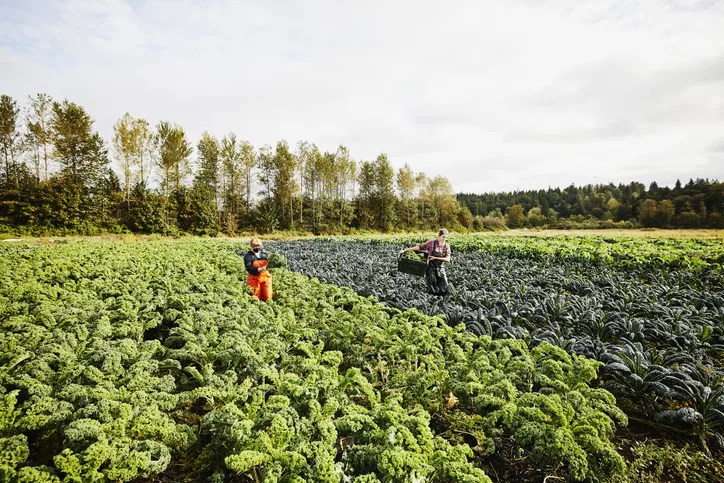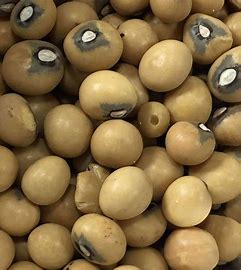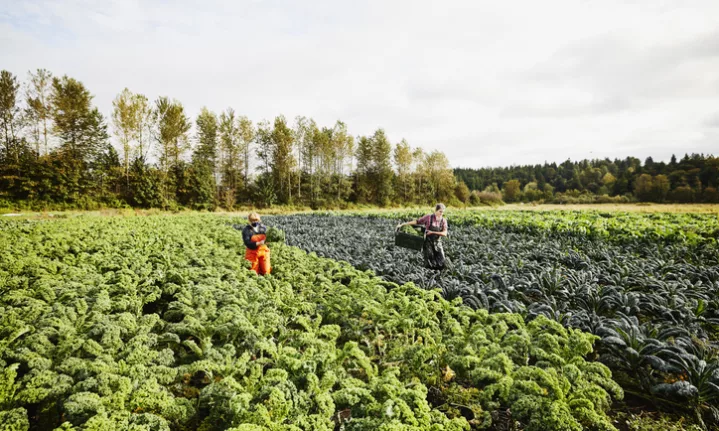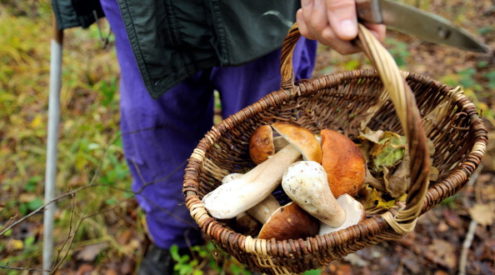Despite an abundance of indigenous vegetables and fruits in Southern Africa, people in the region continue to suffer from food insecurity. It appears that they do not value these foods and their potential to eradicate poverty and hunger, promote health and nutrition, and provide an income for households.

‘The consumption of indigenous foods such as Bambara groundnuts, cowpeas, green leafy vegetables, and pumpkin leaves is declining in most Southern African countries. This decline has been attributed to several factors, including the westernisation of African diets, the bitter and discouraging taste of wild vegetables, culture, and the perception that wild vegetables are low-income foods,’ say researchers in the Division of Human Nutrition in the Faculty of Medicine and Health Sciences at Stellenbosch University.
‘A lack of interest in learning about indigenous foods or the absence of the older people passing on information to the younger generation about the identification, harvesting, preparation and preservation of these foods have also contributed to this decline. Also, commercial farming, research and development have significantly ignored these foods, making them less competitive than established major crops’
The researchers did a systematic review of existing data (2011–2021) about the availability of indigenous foods in Southern Africa, including factors leading to their utilisation. They wanted to determine the availability, regularity of consumption, utilisation, preparation, harvesting and preservation of indigenous foods. They also wanted to detail the knowledge, perceptions and beliefs of indigenous foods under these themes.
The findings of their review were published recently in the international open-access journal Sustainability.
The researchers say the review revealed that the availability of and knowledge about indigenous foods were critical determinants of their intake. This was followed by the belief that they are more nutrient-dense than foreign foods.
‘Studies in Kenya, Botswana, South Africa, Eswatini and Zimbabwe have shown that indigenous foods are rich in macro-nutrients (protein) and micro-nutrients (calcium, vitamin A, potassium, magnesium, zinc and iron) but their nutritional potential and advantages have yet to be adequately appreciated and explored.
‘These foods were reported to be consumed more frequently in rural areas, mainly by the elderly and the unemployed. Studies in our systematic review revealed that some indigenous vegetables obtained from multi-purpose plant species are consumed as food and medicine to promote health. Additionally, various drinks made from indigenous foods are available, including traditional beer, fermented non-alcoholic beverages and herbal teas.
‘Indigenous foods are not only accessible but they are also consumed to provide both nutrition and health benefits in various communities. This is particularly important given that most rural areas in Southern African countries have little to no access to medical facilities or people have to walk long distances to access these facilities.’
The researchers add that indigenous foods were said to have the ability to improve food security through their availability, accessibility, sustainability and utilisation.
They point out that only a small number of studies addressed the preservation of indigenous foods, which explains why the indigenous food plant seed supply business in Southern African countries is underdeveloped.
‘The long-term storage of these foods is significantly hampered by the lack of scientifically validated preservation techniques. Hence, conducting scientific testing on these techniques is essential to ensure that no nutrients are lost.’
According to the researchers, cooking is the most popular method for preparing indigenous foods to improve their digestibility and flavour. ‘Indigenous vegetables are cooked before consumption, while indigenous fruits that are not poisonous are typically consumed as soon as they are picked in the field.’
They say the review also highlights the significance of successful global, regional and national policies in promoting indigenous foods, with little to no supporting policies in most Southern African nations, save for South Africa which has led the way in promoting research on these foods through financial assistance from organisations like the Department of Science and Technology and the Agriculture Research Council.
The researchers emphasise the need for capacity-building skills and suitable infrastructure in rural communities, and enough money for comprehensive research and marketing so that those involved in the growing of indigenous foods can earn a living through their jobs.
‘We also need awareness and promotion campaigns across the region through workshops and programmes on radio and television, as well as relevant governmental organisations involved in promoting the uptake of these foods in schools, and hospitals, and making them part of daily meals.
‘The preservation of knowledge about indigenous food in books and continuing education of the younger generation about the importance of eating these foods and their nutritional content may help with their uptake. The transfer of knowledge may help promote their consumption, preparation and preservation,’ add the researchers.
Follow us on social media for more travel news, inspiration, and guides. You can also tag us to be featured.
TikTok | Instagram | Facebook | Twitter
ALSO READ: Enchanting Montagu: small town form and function



















